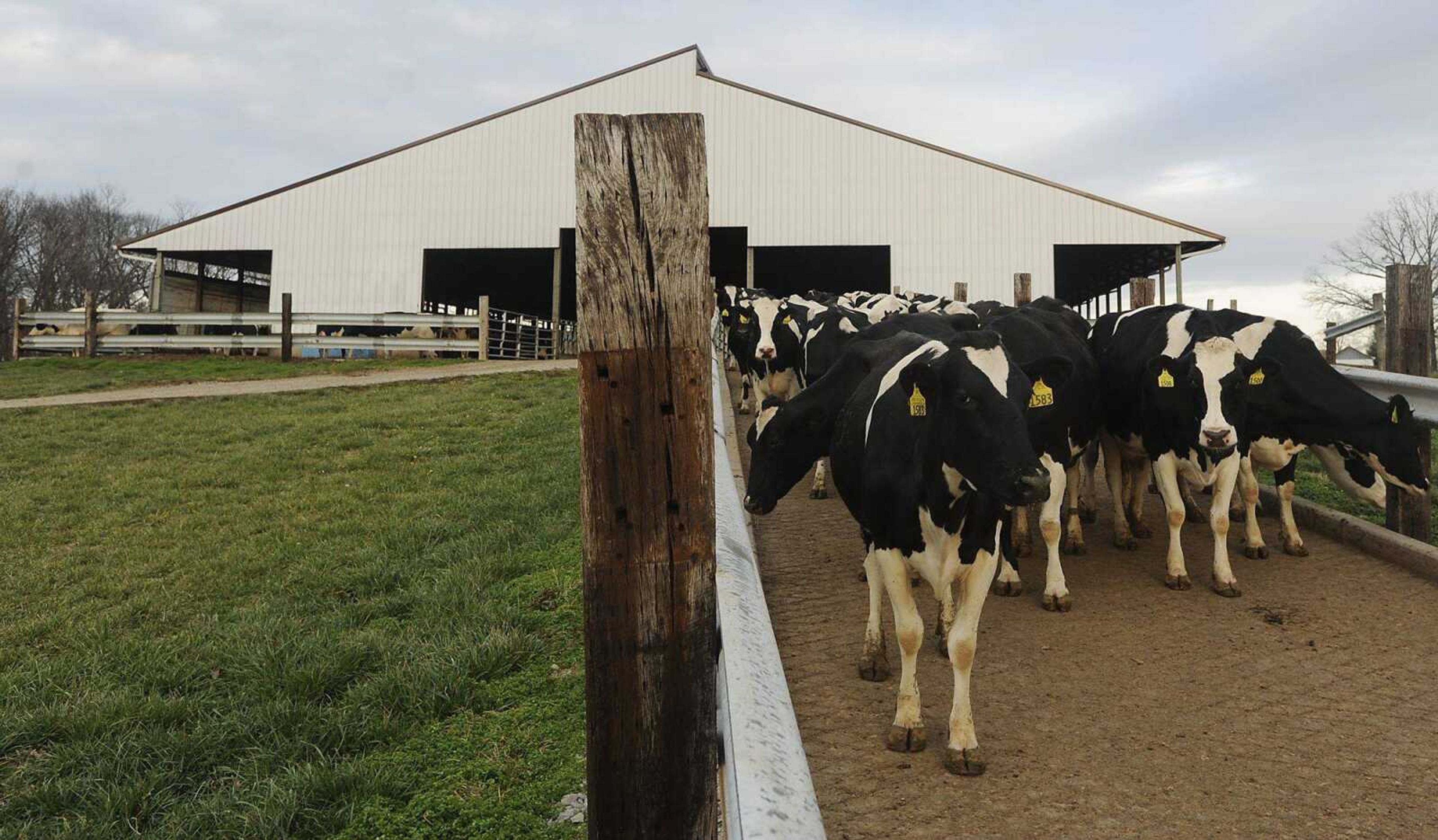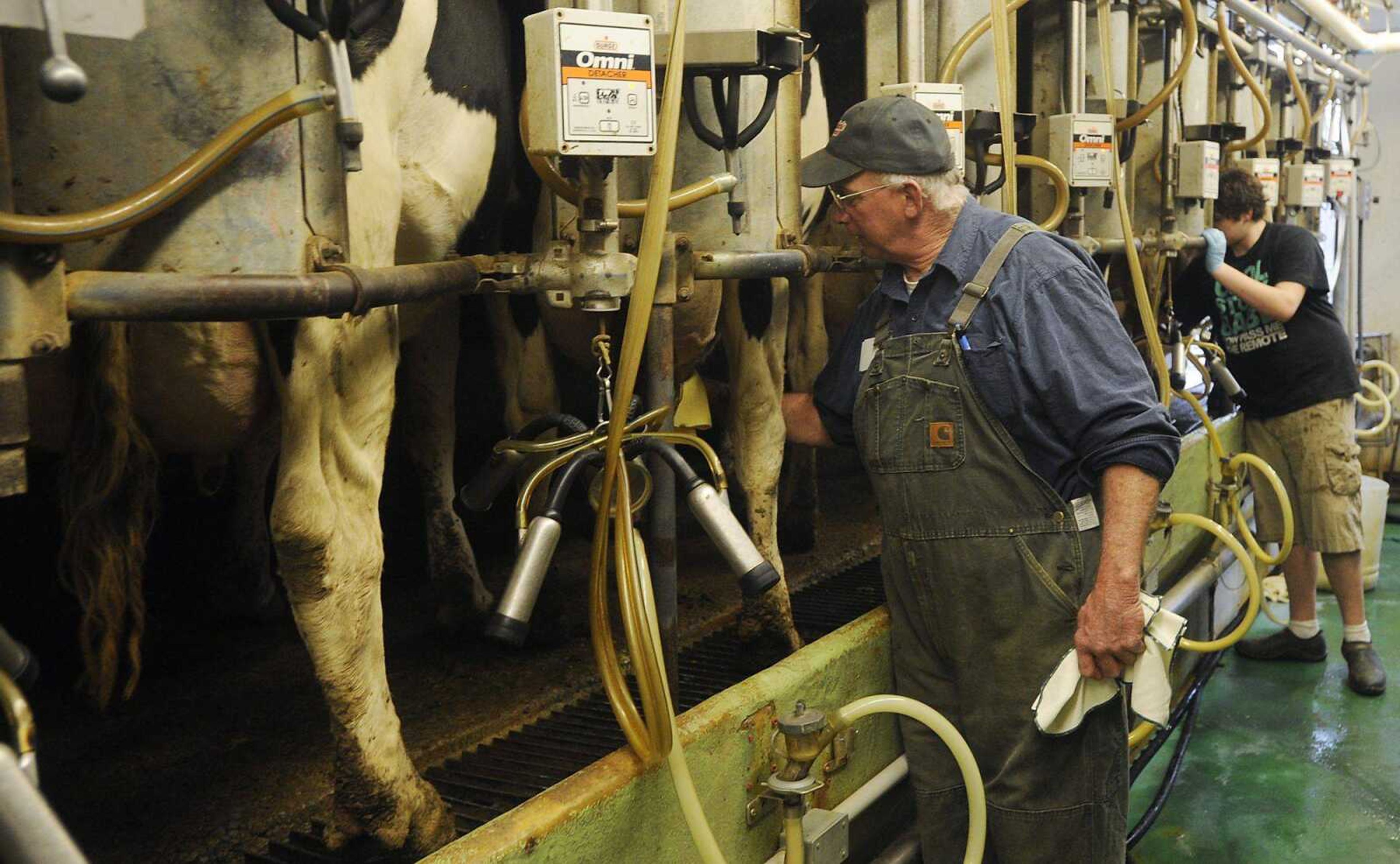Mooove over: Dairy farmers worry fiscal cliff taking priority over farm bill
As Congress works to avoid the impending fiscal cliff, the 2012 farm bill has been left by the wayside, frustrating farmers. "We continue to say we want a farm bill finished," said Garrett Hawkins, director of national legislative programs at the Missouri Farm Bureau Federation. "As we talk about trying to come up with budgetary savings, either version of the farm bill saves billions. Those savings could be used as part of these overall talks."...
As Congress works to avoid the impending fiscal cliff, the 2012 farm bill has been left by the wayside, frustrating farmers.
"We continue to say we want a farm bill finished," said Garrett Hawkins, director of national legislative programs at the Missouri Farm Bureau Federation. "As we talk about trying to come up with budgetary savings, either version of the farm bill saves billions. Those savings could be used as part of these overall talks."
But they're not.
Speaker of the House John Boehner has said he can't just drop the 1,000-plus-page farm bill, which was passed by the Senate in June, into whatever measures are negotiated to deal with the fiscal cliff.
Hawkins still is hopeful that Congress could take up the farm bill later this week when it returns from the Christmas holiday.

Oak Ridge dairy farmer John Schoen said that with less than 20 percent of the members of Congress being from rural areas, politics are coming before their constituents. "They have a responsibility to the people to do their job," Schoen said. "They need to look past some of these partisan issues and get this country going again."
Rep. Jo Ann Emerson said Friday she's frustrated and feels for farmers who at this time of year are trying to plan what they will plant next year.
"The last two years have been as dysfunctional as I've ever seen the Congress," Emerson, R-Cape Girardeau, said. "It has just been unbelievably difficult the last year to get anything done."
About 80 percent of farm-bill spending will go to nutrition programs administered by the United States Department of Agriculture, including the Supplemental Nutrition Assistance Program, formerly known as food stamps, which has been a sticking point for some Republicans that has caused blockage of the bill in the House.
The five-year farm bill technically expired with the fiscal year Sept. 30, but commodity farmers won't feel the effect unless there is not a new farm bill by the time the first commodity is harvested in 2013.
Many programs in the current bill, enacted in 2008, have different deadlines, including the Milk Income Loss Contract (MILC) program, a safety net for dairy farmers. It expires Dec. 31, but funds were cut off to farmers Sept. 1.
The MILC program was designed to offset low milk prices and high input costs.
"Some people like to call it a welfare program, but it has its place," Schoen said. "Without it we could see some tremendous fluctuation in milk prices. Customers will pay one way or another. Either through taxes or at the grocery store."
Schoen fears that higher milk prices, which he believes could top $6 per gallon next year, will result in a customer backlash.
"They'll buy juice instead, which won't be as healthy for them," he said. "When families are up against a wall, they have to make some tough choices. Kids will be the ones that will be hurting."
Schoen and other local dairy farmers continue operations without expecting MILC program payments.
"We just have to go on and make adjustments in expenditures and just get by," he said.
Other dairy farmers he knows have tried to cut back by reducing the amount of feed for their cows, but that leads to lower milk production and probably won't save them any money in the long run, Schoen said.
Emerson said she also is concerned about "skyrocketing" prices for all dairy products. There has been some discussion of pulling the MILC program out of the farm bill and pushing it through as a separate piece of legislation, she said, but uncoupling pieces of the farm bill from one another could be problematic.
Hawkins also favors a complete farm bill, rather than breaking it into pieces.
The farm bill's disaster assistance programs for livestock producers, like the MILC program, also have expired, leaving those who suffered in this summer's unprecedented drought without help.
Sen. Claire McCaskill last week offered an amendment to legislation providing disaster relief throughout the United States, including resources for rebuilding the Northeast after Hurricane Sandy, to reauthorize multiple emergency assistance programs for livestock.
"It's unacceptable that the Senate-passed farm bill reauthorizing these programs has sat in the House for months without receiving a vote," McCaskill said in a news release. "This amendment will provide another opportunity for them to act and that's exactly what they should do."
Emerson said she will spend Christmas in Washington, D.C., and Congress will be on call to come back into session later this week.
She said Congress has had fights before, and she remembers a contentious one over the farm bill of 1996, the year her husband Bill died.
"It was very contentious. They fought, they had a vote, and it went down. Then they fixed it and voted again and it went up," she said. "We can't get anything done and shame on us."
388-3646
mmiller@semissourian.com
Pertinent address:
Oak Ridge, Mo.
Connect with the Southeast Missourian Newsroom:
For corrections to this story or other insights for the editor, click here. To submit a letter to the editor, click here. To learn about the Southeast Missourian’s AI Policy, click here.











